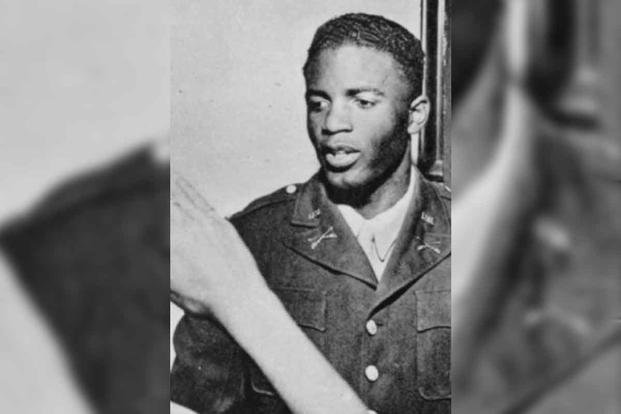Jack Roosevelt Robinson -- better known as Jackie Robinson -- was born in Cairo, Georgia, on Jan. 31, 1919, the same month former President Theodore Roosevelt died. That's how he got his middle name.
In 1920, his father, a sharecropper, left the family. Robinson's mother and her six children moved to Pasadena, California, where she worked at a variety of jobs to support them. But they lived in poverty.
In high school, Robinson played several sports at the varsity level and lettered in four of them: football, basketball, track and baseball.
In 1936, he won the junior boys singles championship in the annual Pacific Coast Negro Tennis Tournament; he also earned a spot on the Pomona, California, annual baseball tournament's all-star team, which included future Hall of Famers Ted Williams and Bob Lemon.
After graduating from Pasadena Junior College in 1939, he enrolled at the University of California at Los Angeles, where he became the first UCLA athlete to win varsity letters in four sports: baseball, football, track and basketball.
In 1942 during World War II, Robinson was drafted and assigned to a segregated Army cavalry unit in Fort Riley, Kansas. He was commissioned as a second lieutenant in January 1943.
Robinson was then assigned to Fort Hood, Texas, where he joined the 761st "Black Panthers" tank battalion.

On July 6, 1944, he boarded an Army bus. The driver ordered Robinson to move to the back of the vehicle, but he refused. The driver called the military police, which took Robinson into custody. He was subsequently court-martialed but was acquitted.
After his acquittal, he was transferred to Camp Breckinridge, Kentucky, where he served as a coach for Army athletics until receiving an honorable discharge in November 1944.
In 1945, Robinson began playing baseball for Missouri's Kansas City Monarchs, one of the teams in the Negro leagues. About that time, Branch Rickey, club president and general manager of the Brooklyn Dodgers, began to scout the leagues for talent. Rickey selected Robinson from a list of promising Black players and interviewed him for a possible assignment on Brooklyn's International League minor-league club, the Montreal Royals.
During the interview, Rickey told Robinson that he'd have to be willing to withstand the inevitable racial abuse that would be directed at him, because there were no Black players in Major League Baseball.
Soon after Robinson was onboard with the Dodgers, Rickey signed another Black baseball player, Johnny Wright, who happened to be a WWII Navy veteran.
On April 15, 1947, the Dodgers called Robinson up to the major leagues, where he played first baseman.
Robinson experienced a lot of hatred from fans and other baseball players who felt that Black players should not be allowed in Major League Baseball.
As a Brooklyn Dodger, Robinson was:
- A six-time All-Star from 1949 to 1954
- A 1955 World Series champion
- MLB Rookie of the Year in 1947
Some other interesting facts about the baseball legend:
- In 1950, Robinson played himself in the movie "The Jackie Robinson Story."
- On June 4, 1972, the Dodgers retired Robinson's uniform number, 42.
- On April 15, 1997, No. 42 was retired from all of MLB; Robinson is the only player ever to receive this honor.
- From 1957 to 1964, Robinson was the vice president for personnel at Chock full o' Nuts, a coffee brand, making him the first Black person to serve as a vice president of a major U.S. corporation.

Until Robinson broke the color barrier in 1947, few Black players made it into baseball history. The first Black baseball player in the MLB was William Edward White, who played for the Providence Grays in 1879 in Providence, Rhode Island. Five years later, Moses Fleetwood Walker and his brother, Weldy Walker, played for the Toledo, Ohio, Blue Stockings.
Want to Know More About Veteran Jobs?
Be sure to get the latest news about post-military careers, as well as critical info about veteran jobs and all the benefits of service. Subscribe to Military.com and receive customized updates delivered straight to your inbox.











